45th Sysmex Scientific Seminar (2023): Clonal Haematopoiesis: Wide Connection Between Blood and Systemic Organs
45th Sysmex Scientific Seminar (2023): Clonal Haematopoiesis: Wide Connection Between Blood and Systemic Organs
Programs & Speakers (All times are in JST)

10:00 - 10:05
45th Sysmex Scientific Seminar Memorial Address
Kaoru Asano, President at Sysmex Corporation

10:05 - 10:10
Opening Address
Chairman of Sysmex Scientific Seminar Planning Committee
Yutaka Yatomi, M.D., Ph.D. (Professor/ Dean of Graduate School of Medicine, International University of Health and Welfare)
10:10 - 10:40
Plenary Lecture: Clonal Haematopoiesis and Relevant Diseases
Speaker: Seishi Ogawa, M.D., Ph.D.
(Professor, Department of Pathology and Tumour Biology, Graduate School of Medicine, Kyoto University)
10:40 - 11:30
Lecture 1: Genetic Landscape of Clonal Haematopoiesis in the Japanese Population
Speaker: Ryunosuke Saiki, M.D., Ph.D.
(Assistant Professor, Department of Pathology and Tumour Biology, Graduate School of Medicine, Kyoto University)
11:30 - 11:45
Q&A

11:45 - 13:00
Lunch Break

13:00-13:50
Lecture 2: Clonal Haematopoiesis and Cardiovascular Disease
Speaker: Yasuchika Takeishi, M.D., Ph.D.
(President, Fukushima Medical University Hospital Professor and Chairman, Department of Cardiovascular Medicine, Fukushima Medical University)
13:50-14:05
Q&A

14:05-14:55
Lecture 3: Acquired Aplastic Anaemia and Clonal Haematopoiesis
Speaker: Kohei Hosokawa, M.D., Ph.D.
(Associate Professor, Department of Haematology, Kanazawa University Hospital)
14:55-15:10
Q&A

15:10-15:25
Break

15:25-16:15
Lecture 4: Clonal Haematopoiesis as an Origin for Malignant Lymphomas
Speaker: Mamiko Sakata-Yanagimoto, M.D., Ph.D.
(Professor, Department of Haematology, Faculty of Medicine, University of Tsukuba, Professor, Transborder Medical Research Center, University of Tsukuba)
16:15-16:30
Q&A

16:30-16:35
Closing Address
The 45th Seminar Planner
Yasushi Miyazaki, M.D., Ph.D.
(Professor, Department of Haematology and Molecular Medicine Unit, Atomic Bomb Disease Institute, Nagasaki University Graduate School of Biomedical Science)
Lecture 1: Genetic Landscape of Clonal Haematopoiesis in the Japanese PopulationRyunosuke Saiki, M.D., Ph.D.
Assistant Professor, Department of Pathology and Tumor Biology, Graduate School of Medicine, Kyoto University
Clonal haematopoiesis (CH) in apparently healthy individuals is implicated in the development of haematological malignancies (HM) and cardiovascular diseases. Previous studies of CH analysed either gene mutations or mosaic chromosomal abnormalities (mCAs), but not both. Here, using a combination of targeted sequencing of 23 CH-related genes and array-based mCA detection of blood-derived DNA, we have delineated the landscape of CH-related gene mutations and mCAs in 11,234 individuals without HM from the BioBank Japan cohort, including 672 individuals with subsequent HM development, and studied the effects of these somatic alterations on mortality from HM and cardiovascular disease, as well as on haematological and cardiovascular phenotypes. The total number of both types of CH-related lesions and their clone size positively correlated with blood count abnormalities and mortality from HM. CH-related gene mutations and mCAs exhibited statistically significant co-occurrence in the same individuals. In particular, co-occurrence of gene mutations and CNAs affecting DNMT3A, TET2, JAK2 and TP53 resulted in biallelic alterations of these genes and was associated with higher HM mortality. Co-occurrence of gene mutations and mCAs also modulated risks for cardiovascular mortality. These findings highlight the importance of detecting both gene mutations and mCAs in the evaluation of CH.
Lecture 2: Clonal Haematopoiesis and Cardiovascular DiseaseYasuchika Takeishi, M.D., Ph.D.
President, Fukushima Medical University Hospital Professor and Chairman, Department of Cardiovascular Medicine, Fukushima Medical University
Cardiovascular diseases are closely linked to aging. Recent advances in genetic analyses have led to the discovery of clonal hematopoiesis, whose haematopoietic stem/progenitor cells harbor somatic mutations in genes often mutated in myeloid cancers, in healthy individuals without any haematologic disorders. Among clonal haematopoiesis, age-related clonal haematopoiesis implies the presence of any detectable clonal events in haematopoietic cells, and its incidence increases with age. It becomes apparent that the age-related clonal haematopoiesis is a significant risk factor for cardiovascular diseases such as coronary artery disease, ischemic stroke, heart failure, pulmonary hypertension, venous thrombosis. The genetic abnormalities observed in clonal haematopoiesis result in functional and phenotypic changes in haematopoietic cells and play a causal role in the progression of types of cardiovascular diseases through the mechanisms that revolve in inflammation. Clonal haematopoiesis is a novel target that links between aging and cardiovascular disease for personalised medicine.
Lecture 3: Acquired Aplastic Anaemia and Clonal Hematopoiesis
Kohei Hosokawa, M.D., Ph.D.
Associate Professor, Department of Haematology, Kanazawa University Hospital
Acquired aplastic anemia (AA) is a haematopoietic disorder caused by the immune system attack on haematopoietic stem cells (HSCs). Recent genomic study revealed clonal haematopoiesis by HSCs with genetic alterations, such as PIGA, DNMT3A, ASXL1, BCOR/BCORL1, copy-number neutral LOH of chromosome 6p (6pLOH), and HLA class I allele mutations is common in patients with AA. Genomic landscape of AA is distinct from myelodysplastic syndrome and age-related clonal haematopoiesis. These results suggest that escape from the autoimmune attack is strongly associated with clonal haematopoiesis in AA. The presence of paroxysmal nocturnal haemoglobinuria (PNH) phenotype cells or 6pLOH suggest the immune-mediated pathophysiology in AA. We recently discovered a common nonsense mutation at codon19 (c.19C>T, p.R7X) in exon1 (Exon1mut) of different HLA-A and HLA-B alleles, and HLA-DR loss of hematopoietic stem progenitor cells in AA patients carrying HLA-DR15. These results provide the important clues for understanding the immune pathophysiology of AA.
Lecture 4: Clonal Haematopoiesis as an Origin for Malignant Lymphomas
Mamiko Sakata-Yanagimoto, M.D., Ph.D.
Professor, Department of Haematology, Faculty of Medicine, University of Tsukuba, Professor, Transborder Medical Research Center, University of Tsukuba
Certain subtypes of malignant lymphomas are thought to originate from clonal haematopoiesis (CH). The addition of somatic mutations to haematopoietic stem cells/progenitors (HSC/HSP) in CH promote their evolution into lymphoma cells. Furthermore, HSCs in CH is thought to differentiate into various lineages of inflammatory cells are also differentiated from CH and infiltrated into tumor tissues. They may function as a niche that support survival of lymphoma cells. In our laboratory, by combining omics approach such as single-cell analysis and genomic analysis for clinical specimens of malignant lymphomas and lymphoma tissues of model mice, we are investigating the mechanisms how “inflammatory cells with somatic mutations” derived from CH support lymphoma cells in the lymphoma microenvironment. The aberrant networks of lymphoma cells and “inflammatory cells with somatic mutations” may serve as new therapeutic targets.
Seishi Ogawa, M.D., Ph.D.
Professor, Department of Pathology and Tumour Biology, Graduate School of Medicine, Kyoto University
Ryunosuke Saiki, M.D., Ph.D.
Assistant Professor, Department of Pathology and Tumour Biology, Graduate School of Medicine, Kyoto University
Yasuchika Takeishi, M.D., Ph.D.
President, Fukushima Medical University Hospital Professor and Chairman, Department of Cardiovascular Medicine, Fukushima Medical University
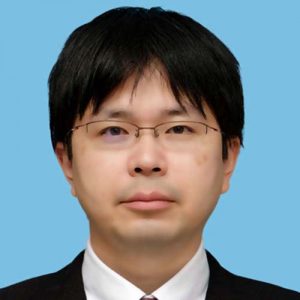
Kohei Hosokawa, M.D., Ph.D.
Associate Professor, Department of Haematology, Kanazawa University Hospital
Mamiko Sakata-Yanagimoto, M.D., Ph.D.
Professor, Department of Haematology, Faculty of Medicine, University of Tsukuba Professor,
Transborder Medical Research Center, University of Tsukuba
- Program and Speakers (All times in JST)
-
Programs & Speakers (All times are in JST)

10:00 - 10:05
45th Sysmex Scientific Seminar Memorial Address
Kaoru Asano, President at Sysmex Corporation

10:05 - 10:10
Opening Address
Chairman of Sysmex Scientific Seminar Planning Committee
Yutaka Yatomi, M.D., Ph.D. (Professor/ Dean of Graduate School of Medicine, International University of Health and Welfare)
10:10 - 10:40
Plenary Lecture: Clonal Haematopoiesis and Relevant Diseases
Speaker: Seishi Ogawa, M.D., Ph.D.
(Professor, Department of Pathology and Tumour Biology, Graduate School of Medicine, Kyoto University)
10:40 - 11:30
Lecture 1: Genetic Landscape of Clonal Haematopoiesis in the Japanese Population
Speaker: Ryunosuke Saiki, M.D., Ph.D.
(Assistant Professor, Department of Pathology and Tumour Biology, Graduate School of Medicine, Kyoto University)
11:30 - 11:45
Q&A

11:45 - 13:00
Lunch Break

13:00-13:50
Lecture 2: Clonal Haematopoiesis and Cardiovascular Disease
Speaker: Yasuchika Takeishi, M.D., Ph.D.
(President, Fukushima Medical University Hospital Professor and Chairman, Department of Cardiovascular Medicine, Fukushima Medical University)
13:50-14:05
Q&A

14:05-14:55
Lecture 3: Acquired Aplastic Anaemia and Clonal Haematopoiesis
Speaker: Kohei Hosokawa, M.D., Ph.D.
(Associate Professor, Department of Haematology, Kanazawa University Hospital)
14:55-15:10
Q&A

15:10-15:25
Break

15:25-16:15
Lecture 4: Clonal Haematopoiesis as an Origin for Malignant Lymphomas
Speaker: Mamiko Sakata-Yanagimoto, M.D., Ph.D.
(Professor, Department of Haematology, Faculty of Medicine, University of Tsukuba, Professor, Transborder Medical Research Center, University of Tsukuba)
16:15-16:30
Q&A

16:30-16:35
Closing Address
The 45th Seminar Planner
Yasushi Miyazaki, M.D., Ph.D.
(Professor, Department of Haematology and Molecular Medicine Unit, Atomic Bomb Disease Institute, Nagasaki University Graduate School of Biomedical Science)
- Lecture Abstracts
-
Lecture 1: Genetic Landscape of Clonal Haematopoiesis in the Japanese PopulationRyunosuke Saiki, M.D., Ph.D.
Assistant Professor, Department of Pathology and Tumor Biology, Graduate School of Medicine, Kyoto UniversityClonal haematopoiesis (CH) in apparently healthy individuals is implicated in the development of haematological malignancies (HM) and cardiovascular diseases. Previous studies of CH analysed either gene mutations or mosaic chromosomal abnormalities (mCAs), but not both. Here, using a combination of targeted sequencing of 23 CH-related genes and array-based mCA detection of blood-derived DNA, we have delineated the landscape of CH-related gene mutations and mCAs in 11,234 individuals without HM from the BioBank Japan cohort, including 672 individuals with subsequent HM development, and studied the effects of these somatic alterations on mortality from HM and cardiovascular disease, as well as on haematological and cardiovascular phenotypes. The total number of both types of CH-related lesions and their clone size positively correlated with blood count abnormalities and mortality from HM. CH-related gene mutations and mCAs exhibited statistically significant co-occurrence in the same individuals. In particular, co-occurrence of gene mutations and CNAs affecting DNMT3A, TET2, JAK2 and TP53 resulted in biallelic alterations of these genes and was associated with higher HM mortality. Co-occurrence of gene mutations and mCAs also modulated risks for cardiovascular mortality. These findings highlight the importance of detecting both gene mutations and mCAs in the evaluation of CH.
Lecture 2: Clonal Haematopoiesis and Cardiovascular DiseaseYasuchika Takeishi, M.D., Ph.D.
President, Fukushima Medical University Hospital Professor and Chairman, Department of Cardiovascular Medicine, Fukushima Medical UniversityCardiovascular diseases are closely linked to aging. Recent advances in genetic analyses have led to the discovery of clonal hematopoiesis, whose haematopoietic stem/progenitor cells harbor somatic mutations in genes often mutated in myeloid cancers, in healthy individuals without any haematologic disorders. Among clonal haematopoiesis, age-related clonal haematopoiesis implies the presence of any detectable clonal events in haematopoietic cells, and its incidence increases with age. It becomes apparent that the age-related clonal haematopoiesis is a significant risk factor for cardiovascular diseases such as coronary artery disease, ischemic stroke, heart failure, pulmonary hypertension, venous thrombosis. The genetic abnormalities observed in clonal haematopoiesis result in functional and phenotypic changes in haematopoietic cells and play a causal role in the progression of types of cardiovascular diseases through the mechanisms that revolve in inflammation. Clonal haematopoiesis is a novel target that links between aging and cardiovascular disease for personalised medicine.
Lecture 3: Acquired Aplastic Anaemia and Clonal Hematopoiesis
Kohei Hosokawa, M.D., Ph.D.
Associate Professor, Department of Haematology, Kanazawa University HospitalAcquired aplastic anemia (AA) is a haematopoietic disorder caused by the immune system attack on haematopoietic stem cells (HSCs). Recent genomic study revealed clonal haematopoiesis by HSCs with genetic alterations, such as PIGA, DNMT3A, ASXL1, BCOR/BCORL1, copy-number neutral LOH of chromosome 6p (6pLOH), and HLA class I allele mutations is common in patients with AA. Genomic landscape of AA is distinct from myelodysplastic syndrome and age-related clonal haematopoiesis. These results suggest that escape from the autoimmune attack is strongly associated with clonal haematopoiesis in AA. The presence of paroxysmal nocturnal haemoglobinuria (PNH) phenotype cells or 6pLOH suggest the immune-mediated pathophysiology in AA. We recently discovered a common nonsense mutation at codon19 (c.19C>T, p.R7X) in exon1 (Exon1mut) of different HLA-A and HLA-B alleles, and HLA-DR loss of hematopoietic stem progenitor cells in AA patients carrying HLA-DR15. These results provide the important clues for understanding the immune pathophysiology of AA.
Lecture 4: Clonal Haematopoiesis as an Origin for Malignant Lymphomas
Mamiko Sakata-Yanagimoto, M.D., Ph.D.
Professor, Department of Haematology, Faculty of Medicine, University of Tsukuba, Professor, Transborder Medical Research Center, University of TsukubaCertain subtypes of malignant lymphomas are thought to originate from clonal haematopoiesis (CH). The addition of somatic mutations to haematopoietic stem cells/progenitors (HSC/HSP) in CH promote their evolution into lymphoma cells. Furthermore, HSCs in CH is thought to differentiate into various lineages of inflammatory cells are also differentiated from CH and infiltrated into tumor tissues. They may function as a niche that support survival of lymphoma cells. In our laboratory, by combining omics approach such as single-cell analysis and genomic analysis for clinical specimens of malignant lymphomas and lymphoma tissues of model mice, we are investigating the mechanisms how “inflammatory cells with somatic mutations” derived from CH support lymphoma cells in the lymphoma microenvironment. The aberrant networks of lymphoma cells and “inflammatory cells with somatic mutations” may serve as new therapeutic targets.
- Speakers
-

Seishi Ogawa, M.D., Ph.D.
Professor, Department of Pathology and Tumour Biology, Graduate School of Medicine, Kyoto University

Ryunosuke Saiki, M.D., Ph.D.
Assistant Professor, Department of Pathology and Tumour Biology, Graduate School of Medicine, Kyoto University

Yasuchika Takeishi, M.D., Ph.D.
President, Fukushima Medical University Hospital Professor and Chairman, Department of Cardiovascular Medicine, Fukushima Medical University

Kohei Hosokawa, M.D., Ph.D.
Associate Professor, Department of Haematology, Kanazawa University Hospital

Mamiko Sakata-Yanagimoto, M.D., Ph.D.
Professor, Department of Haematology, Faculty of Medicine, University of Tsukuba Professor,
Transborder Medical Research Center, University of Tsukuba


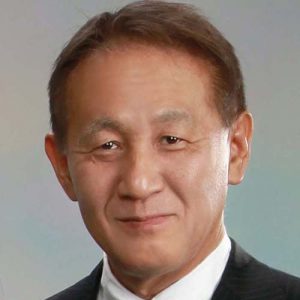
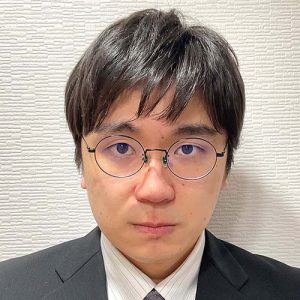
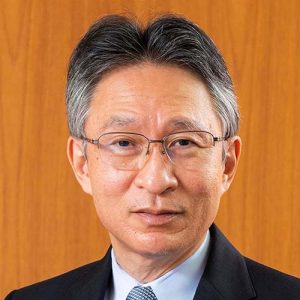
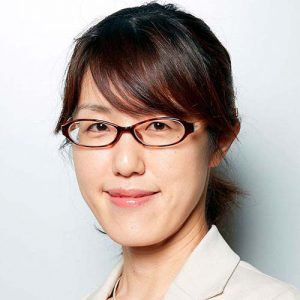
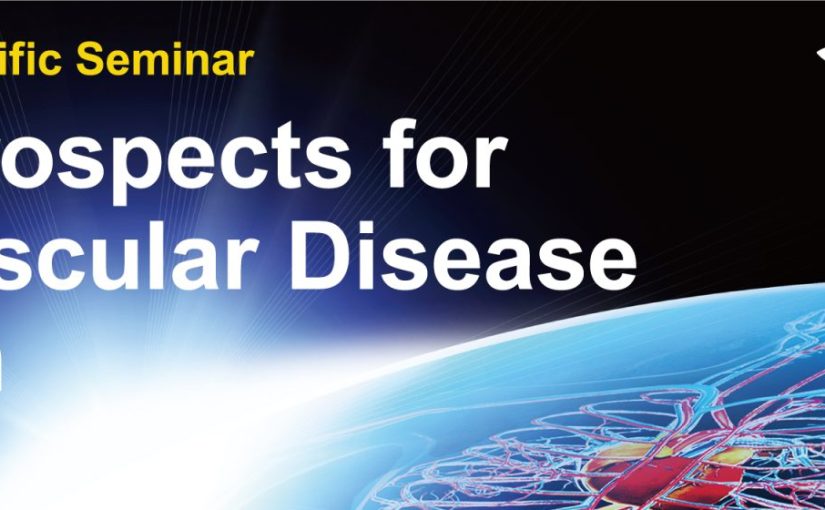
![[VOD AVAILABLE] Harmonisation of Discordant Notes in the Extended Lipid Panel including Lipoproteins, Apoproteins and Cardiac Markers](https://www.sysmex-ap.com/wp-content/uploads/2024/01/29135-e1705552615518-825x510.jpg)

![[VOD AVAILABLE] “Minds Together” Sysmex Knowledge Congregation – Utility of Mono-score in Infections & QMS in Medical Diagnostics Laboratories](https://www.sysmex-ap.com/wp-content/uploads/2024/01/dreamstime_l_9619043_RF-825x510.jpg)